




#MUSIC IS KEY
REGISTER FOR THE OMEA 2021 CONFERENCE
Register at https://register.opusevent.com/ Register by Jan. 8th for an early-bird discount!
OMEA Member:
Earlybird - by Jan 8, 11:59:59 PM: $102
Starting on Jan 9: $149
Retired OMEA Member: $49
Collegiate NAfME Member $5
Non-Member or Out-of-State NAfME members Registration $189



Access conference information, times, presenter bios, and materia accompanying each session. Visit our sponsors and more! Availab mobile device and computer.
Go to zoom.us/pricing to obtain a free account. Presenters and attendees are all visible on the screen. Audience members can control what they see on their screens by choosing Speaker or Gallery Views & pinning speakers.
Sessions will be recorded for conference attendees and will be posted at a private link for a month after the conference, only viewable by registered attendees.
Screen fatigue is real.
This isn't school - there's time to visit our vendors, grab some coffee, run to the restroom, take care of people at home, or maybe even take a brisk walk or nap!
FRIDAY PM, JANUARY 15
SATURDAY AM, JANUARY 16
#MUSIC IS KEY 7 PM
OMEA Welcome!

Dr. Marissa Silverman, Keynote

8:30 - 9:15 AM
Accessing Title IV-A Grants for Your Program Demystifying the Sight-Reading Process
Mind Your Metals!
7:45 - 9 PM
Elemental Thematic Lesson Planning
8 - 9 PM
Beginning Trumpet Solutions
Farther Faster: Project-Based Learning In the Music Classroom
Jazz Pedagogy in a Virtual World Orchestra Repertoire Reading Session
PreK-12 Teachers: What to do when you Have to Teach Everything!
Teaching & Learning Music in the 21st Century
9 PM Phriday Phil's After Hours Hang!
SATURDAY AM, JANUARY 16
MORNING ASSEMBLY 8 AM
with Dr. Tim Lautzenheiser

Stay Gold: 5 Core Tenets for Building a Choral Program Strategies for Teaching Beginning Jazz Improvisation Using Proficiency Based Grading to Provide Constructive and Specific Feedback to String Students
8:30 - 9:45 AM
Together Apart - Maintaining Community in the Midst of Social Distancing
9:45 - 10:30 AM
Flipped Classroom Model for Your Choral Ensemble
Improvisation Games over Zoom
Mirror, Mirror, on the Wall Am I providing opportunities reflecting all?
The Physics of Brass
Practical Applications of Kato Havas' New Approach to Teaching String Instruments
Small Schools Roundtable
10:15 - 11:30 AM
KALANI, presented by Peripole
11 - 11:45 AM
Creating an Inclusive Environment for the Choir and Voice Student
Running Rehearsals in a Virtual World Tangible Intangibles: Learning to be a "Natural"
Writing for NAfME Journals
1 - 1:45 PM
Contemporary approaches to Samba for the Jazz Rhythm Section
The Intangibles of Music: Tips and Strategies for Expressive Music Making
Intentional Choral Warm-Ups: Skill Building and Accountability
Let's Talk about Soundtrap Orchestra Roundtable
Teaching Choir for the Band Director
- 2:15 PM 2:15 - 3 PM 2:45 - 4 PM
Dr. Rekha Rajan and Amber Fruhling: Teaching Elementary General Music in a Virtual Environment
Band Repertoire Reading Session
Learning Chinese Choral Music and Diction from a Native
Lessons Learned from Our Tragedy - Checking in with the Santa Fe High School Band
Music Education and Social Emotional Learning: The Heart of Teaching Music
Orchestra in the Virtual Classroom
Wait, I Have to Teach Movement?
Student Created Music as the Backbone of your Music
Curriculum
3:30 - 4:15 PM 4:45 - 5:30 PM
Advocacy Roundtable
Affective Teaching Is Effective Teaching
Creative Learning Experiences for Music Ensembles Using Digital Audio Tools
Unlocking the Beautiful Euphonium Sound
OMEA Solo & Ensemble Details Explained for Spring 2021

Practice Habits Under the Microscope: Examining Practice
"Muscles" at the Cellular Level
4:15 - 5:30 PM
Supporting Oregon's Teachers: OMEA, SWOKE, and POSA
Creating a Virtual Concert in a Pandemic
Freedom to Play: A Recovery Path for the Musician I Love My Job but It's Killing Me!
Online Social Gathering to follow


Friday Keynote Speaker Friday, 7 PM
Author of Music Matters: A philosophy of music education and co-editor of Artistic Citizenship: Artistry, Social Responsibility, and Ethical Praxis Dr Silverman champions exploring community music in global contexts, interconnections and marginalized communities, as well as artistry and social justice in performing ensembles Montclair State University
Saturday Closing Session
Writing for NAfME Journals (Sat. 11 AM), Online Learning Strategies for Elementary (Sat. 1 - 2:15)

Dr Rekha S Rajan has been an educator for over 20 years Rekha is the author of six books for teachers and parents on how to bring the arts, music and musical theater into children’s education. As a nationally recognized educator, her work has been featured with NPR, the National Head Start Association, the National Association for the Education of Young Children, the California Alliance for Arts Education, and the National Endowment for the Arts She is a curriculum advisor to multiple states and agencies including the California Department of Education, the Illinois Department of Education and is the editor for General Music Today, a journal of the National Association for Music Education

Start your OMEA Saturday with Dr. Tim! Saturday, 8 AM

Following his tenure at the university level, "Dr Tim" spent three years with McCormick’s Enterprises working as Executive Director of Bands of America In 1981, Tim created Attitude Concepts for Today, Inc , an organization designed to manage the many requests for workshops, seminars, and convention speaking engagements focusing on the area of positive attitude and effective leadership training. Over two million students have experienced his acclaimed student leadership workshops over the last three decades Serves as the VP of Education at Conn-Selmer
President of the National Association for Music Education
Mackie is a published author with research interests in music teacher effectiveness, critical discourse, culturally responsive teaching, social justice in music education, and critical theory. Dr. Spradley currently teaches at the University of North Texas.

Music Education and Social Emotional Learning: The Heart of Teaching Music (Sat 2:15 - 3 pm)
Dr Scott N Edgar is Associate Professor of Music, Music Education Chair, and Director of Bands at Lake Forest College Edgar is the author of Music Education and Social Emotional Learning: The Heart of Teaching Music and is an internationally sought-after clinician on the topic. In addition to clinics, he also teaches graduate courses on Musical Social Emotional Learning at VanderCook College of Music and is a Music for All Educational Consultant

FRIDAY, JANUARY 15
7:45 - 9 PM

OMEA President
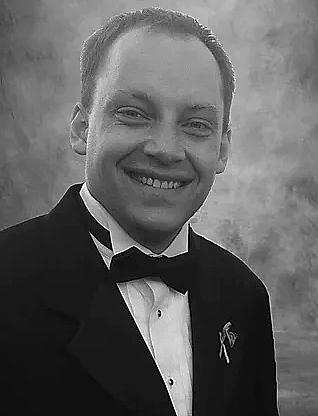

Friday Keynote Speaker
Author of Music Matters: A philosophy of music education and co-editor of Artistic Citizenship: Artistry, Social Responsibility, and Ethical Praxis Dr Silverman champions exploring community music in global contexts, interconnections and marginalized communities, as well as artistry and social justice in performing ensembles Montclair State University
A = General Interest (all levels/areas)
GM = General Music
B = Band
J = Jazz
C = Choral
O = Orchestra
Lavonna Zeller-Williams-Bratschi

Creating a thematic project for students can be a wonderful way to develop higher-level learning, peer teaching, problem solving and collaboration Students can take ownership of their musical learning, contribute to their own learning and retain more musical knowledge which then leaves them with a desire to learn more. From the co-author of Whokulele? YOUkulele! Ukulele Made Easy, and the maker of Zwubber Bands.
David Adee
Come learn a special approach to movement and theater developed to promote participation with students in “Zoomlandia” (online classes) Use beautiful and compelling recorded music, games, stories and found objects to invigorate in-home learning for students
Zach Buie
This clinic will address challenges and solutions to achieve a resonant, fundamentally rooted trumpet section Wind, articulation, and embouchure are three primary areas of development It is important for instructors to have applicable information that informs their concise feedback for students We will discuss the teaching implications of the trumpet within the brass family, the importance of establishing a tonal concept, and helpful resources for the educator including exercises, literature, and proven accessories Areas covered will include strategies that encourage students to take the warm-up routine seriously while remaining mentally active. Developing a beautiful, resonant sound across the trumpet section is an attainable goal at any level or program
Dianne Nelson
This session will show you how to create project-based learning units within your music classes that are relevant to the teaching going on in your classes These kinds of learning units are also easy to transition to online learning--giving you another way to teach content in today's academic world They allow you to take your ensemble's understanding farther, include opportunities for social-emotional teaching and learning, and allow students to have a voice in your classroom and in their education Project-Based Learning units are something I have taught successfully for years in my middle-school choir classroom; when I presented at OMEA last year, these units were something every attendee wanted to know more about Session Presentation will include student work examples and an example unit outline

Dan Davey
This session will address ideas and concepts to engage your students and further educate them in a virtual platform
Laura Boldon
Sponsored by J.W. Pepper
Virtual reading session of titles for String Orchestra ensembles selected by teachers and facilitated by J W Pepper A variety of levels ranging from Beginning to Medium/Advanced will be included Hoping to have many testing the music with instruments in hand as close to a virtual orchestra as we can get this year! Please expect to complete an online form through Pepper to have access to the material



Chad Zullinger

One of the many ways in which innovation has enhanced music making in the 21st century is the ubiquitous nature of technology in creating, performing and recording processes of music making However, to engage with such tools for music making, music education must address the cultural contexts where such music originates: electronic dance music and hip-hop, to highlight a few An innovative perspective in music education occurs when current and future music students synthesize knowledge and content creation from personalized and collaborative learning communities This session will explore strategies that integrate popular music, technology, along with formal and informal learning situations to consider a more inclusive definition of music making in the 21st century
Stacey Atwell-Keister

A session for small-school directors who teach band, choir, and elementary general music
An overview of elementary resources, materials, and curricula available on a budget, basic starter repertoire and warmups for instrumentalists teaching choir, and a list of classic band songs and technique exercises for vocal majors teaching band. I will also discuss the unique challenges of small-schools directors and strategies for dealing with the behavioral challenges of children who have experienced trauma


Dr. Timothy Lautzenheiser

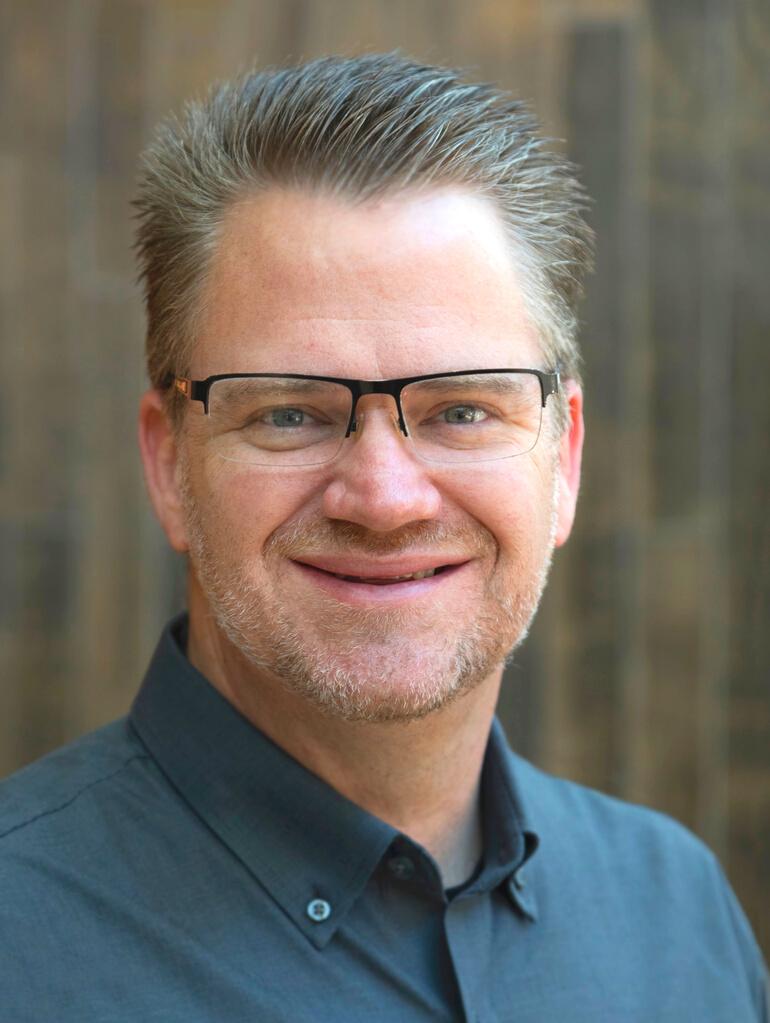

Following his tenure at the university level, "Dr. Tim" spent three years with McCormick’s Enterprises working as Executive Director of Bands of America In 1981, Tim created Attitude Concepts for Today, Inc , an organization designed to manage the many requests for workshops, seminars, and convention speaking engagements focusing on the area of positive attitude and effective leadership training Over two million students have experienced his acclaimed student leadership workshops over the last three decades Serves as the VP of Education at Conn-Selmer
8:30 - 9:15 AM
Heather Mansell and Dr. Dave Gerhart
Sponsored by Yamaha
Learn how you may be eligible for a Title IV-A Grant for Your K-12 Public School Program We will discuss ESSA, how Title IV-A funding works, and various resources available to educators
Timothy Kaiser
Although mastery of sight-reading skills is an essential component of musicianship, our band, orchestra, and choir students are often intimidated by the prospect of sight-reading This presentation will outline a year-long approach to teaching sightreading fundamentals, including strategies for incorporating sight-reading practice into the daily rehearsal plan Whether you are preparing for an adjudicated contest or simply looking to build a basic skill set, a focus on sight-reading will yield accomplished, independent musicians capable of performing a wide variety of repertoire.
Dwayne Corbin
The metal percussion instruments (gongs, cymbals, triangle, brake drums, etc ,) create unique challenges for band & orchestra teachers and students alike, due to their extreme volume, often awkward techniques, long sustain, and often-vague notations in the score regarding their sustain & articulation Further, students performing on these instruments are highly exposed, and thus often anxious and/or insecure In this clinic, Dr Corbin will present ideas taken from decades of his own performing & adjudicating, and will equip you with practical teaching & score interpretation tips to assist your band and full orchestra percussion sections reach their full potential

Eric Posada
Inheriting a choral program is challenging Success can be defined as creating a culture that fits one ’ s vision, core values, style, and students No matter the level, it is important to stay true to one ’ s self while building a program To achieve this, identify values that will permeate one ’ s program Dr Posada will focus on five core tenets that will build, motivate, and innovate your program


Sarah Owen
This session will introduce jazz band teachers to jazz improv pedagogies through listening, call and response, playing by ear, and interacting with fellow musicians while improvising Jazz Band teachers will come away with actionable activities that they can use upon returning to their jazz band classes (virtual or in-person)
FEEDBACK TO STRING STUDENTS


Lauren Trolley
This session will look at how Proficiency Based Grading can be applied effectively to help students develop their knowledge and skills and for assessment purposes in the string classroom

8:30 - 9:45 AM

Music educators work to build a community of musicians This session will explore the importance of building community while incorporating social emotional learning skills Participants in this session will experience engaging, community building activities that will work whether in a distanced classroom or distance learning situation including partner and group activities, dances, and listening lessons Multiple objectives will be taught addressing the National Arts Standards
David Adee
David Adee has studied music and dance in Mexico and Brazil and for 20 years has taught a creative, Orff-based world music program at El Camino del Río Elementary, a dual immersion school in Eugene, Oregon Come experience a playful movementbased approach to on-line learning using lively latinx melodies, movement games, body percussion and found objects to cultivate maximum student engagement.

9:45 - 10:30 AM (PART 1)

Kathryn Briggs
Differentiated? Yes Assessable? Yes Data providing? Yes Distance Learning Friendly? Yes When your rehearsal/class time is limited and you and your students want to spend every moment singing, it can be difficult to not only teach in-depth music concepts, but to assess them When you have one singer who has 10 years of piano next to another singer who still is learning pitch names on the staff, it is hard to provide lessons appropriate for both When you have a 3rd year choir student next to a 1st year choir student, it is hard to provide fresh material year and year. Flipped Classroom lessons are the answer to all of these problems, without taking any time away from rehearsal I started a system at the beginning of the 2019-2020 school year that was highly successful during the first semester and moved seamlessly into distance learning second semester once the pandemic hit I'll share the research on flipped classroom models and how I found success with it in my choirs
Steve Treseler
We can combat the isolation of pandemic music education through creative music experiences Although we can't hold traditional rehearsals over video conferencing platforms due to latency, we can play music together unmuted and have meaningful experiences in real-time We need to embrace the audio delay as part of the creative process Saxophonist and teaching artist Steve Treseler will walk you through creative improvisation games and activities that he has facilitated in-person and remotely for students around the world

Lori Schwaartz Reichl
Reflect on the diversity and inclusivity of your program Are you focusing on the needs of students as learners, and not only as musicians? Has your vocabulary evolved to reflect our changing society and cultures? Have you implemented a curriculum that validates the framing of both mirrors and windows for students to hear, see, and experience the world and its music in more than one way? These opportunities are crucial for acceptance, development, and unity

SATURDAY, JANUARY 16
9:45 -
John Harbaugh
Using principles of Brass Instrument Acoustics studied by Dr Arthur Benade, and pedagogical techniques developed by William Adam during a half-century of teaching at Indiana University, Professor Harbaugh will show attendees a new way of getting more music out of their brass players.

Dijana Ihas and Alice Blankenship
Kato Havas’ New Approach is a unique system of teaching string instruments that is known for being beneficial to preventing and treating performance-related injuries as well as performance anxiety The purpose of this interactive session is to provide participants with an overview of New Approach with an intention to make its major principles understandable and useful to practicing teachers Session will cover four subtopics: (a) a brief introduction to New Approach from philosophical and general principles point of view, (b) steps for teaching stance, bow hold and foundational right-hand techniques, and (c) steps for teaching instrument hold, left-hand position/shape and foundational left-hand techniques and (d) miming Co-presenters of the session are trained in Havas approach and are pleased to share their experiences
Participants will receive a thorough digital handout and will leave the session with lots of fresh ideas on teaching strings

Karalyn Soffer
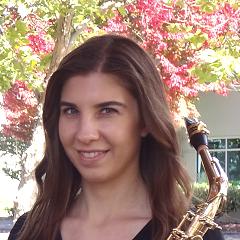
This roundtable session is open for any music teacher to discuss topics and share ideas related to small schools in Oregon


10:15 - 11:30 AM
Kalani Das, MT-BC is a world percussion specialist with more than 30 years of professional experience He is a certified OrffSchulwerk educator, a board-certified music therapist Kalani has worked with music legends Barry Manilow, Yanni, Kenny Loggins, and Rod Stuart He is the founder of the DCM approach to community music making and teaches online courses for Vandercook College of Music Kalani has written numerous books and produces two podcasts and the WORLD DRUM CLUB YouTube channel He presents workshops, retreats, and residencies and can be contacted through kalanimusic com and playsinglaugh com

11 - 11:45 AM

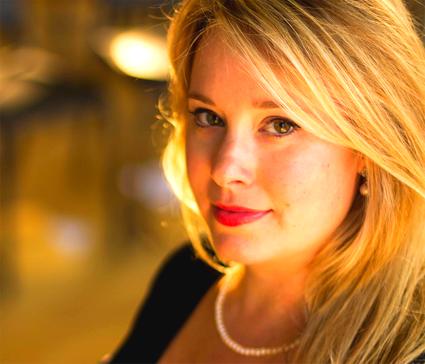
James Reddan and Dr. Claire Hudkins
As our world continues to change, the choir room is often where students seek safety and solace As vocal music educators, it is imperative that we are creating safe spaces that respect our students In this session, we will explore some of the deeper questions and considerations about the language of rehearsal and performance, colonization within the choral and solo vocal art, and the power systems we may or may not be aware of in both the choral rehearsal and voice lesson We will look closely at a number of teaching and repertoire selection strategies with specific attention to considerations of how the way we teach, the way we rehearse, and the materials we teach with can be used to enhance vocal artistry, empower and affirm all students
Stuart Welsh
This session will feature a panel of music educators sharing what rehearsal structures and methods they have found to be most effective in this new reality With each music program and school district offering a wide variety of altered programs in in a virtual setting, we will share structures and formats from several different levels and approaches While this has been listed as a Band and Orchestra session, these ideas could be equally applicable to any director who used to have performance based classes and now needs new ideas.
Andrew Strietelmeier


This session will feature a panel of music educators sharing what rehearsal structures and methods they have found to be most effective in this new reality With each music program and school district offering a wide variety of altered programs in in a virtual setting, we will share structures and formats from several different levels and approaches While this has been listed as a Band and Orchestra session, these ideas could be equally applicable to any director who used to have performance based classes and now needs new ideas


Rekha Rajan and Kendra Kay Friar
In this session, you will learn tips and techniques for getting your ideas published in General Music Today GMT is one of the most widely read and distributed journals with the National Association for Music Education Our focus is on research-based strategies that can be immediately implemented into your classroom, studio or teaching setting The editorial committee provides detailed feedback for all submissions as we hope to champion the innovative, creative ideas you submit The session will be led by Dr Rekha S Rajan, the academic editor, and Kendra Kay Friar who sits on the editorial committee


SATURDAY, JANUARY 16 1 - 1:45 PM
Cameron Siegal
Through tracing the roots of samba (focusing on the batucada tradition of the samba schools of Rio de Janeiro), this presentation and workshop will examine rhythms, instrumental techniques, and contexts of samba to expand understandings of samba in the jazz realm Demonstrations on caixa, tamborim, pandeiro, surdo, repinique, and chocalho will provide a foundation for contemporary approaches to samba for the rhythm section, with a particular emphasis on the drum set (including drum set demonstrations as well) This presentation will examine the lineage of Brazilian drum set and jazz from contemporary artists such as Kiko Freitas and Hermeto Pascoal to early-innovators like Edison Machado and Pixinguinha

Erik Leung
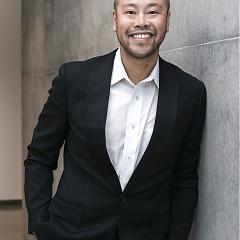
Once the basics of the music is learnt, we are faced with the task of teaching music making with our students This demonstration presentation will highlight the following higher level concepts related to MUSICALITY: Creating Musical Momentum, Creating Musical Weight and Style, and Creating Musical Clarity
Eric Posada
A rehearsal typically begins with a warm-up that ranges from breathing and vocalizing to stretching and movement We must ask ourselves: Have our warm-ups grown stale? Can these skills transfer to our choral repertoire? Am I consistently assessing and giving feedback? Through various warm-up exercises, Dr Posada will identify each targeted skill while diagnosing issues and proposing solutions

Brandon Sause
We all miss rehearsing with our band, orchestras and choirs Whether you work with a group of 5 or a group of 105 the challenge in distance learning is the same How on earth do we make music TOGETHER!?! Soundtrap in many ways solves this issue and provides a medium for teaching students real world recording techniques that easily transfer to industry standard programs like Logic, Protools, etc In our session, we will explore best practices for how to help students successfully record themselves, collaborate with peers and how we as teachers can put it all together to produce a ''performance'' students and parents can be proud of
Krista DeBolt and Tommi Moore
This is a time for all of us to get together and share what is working, get advice on things that are not working, and support each other in this crazy world of online teaching ASTA (American String Teachers) would like to come and talk about ways they can support orchestra teachers in the future as well Look forward to talking with you all

Melissa Jmaeff
For the band director who does it all -- including teaching choir! We will talk approach, rehearsal technique, lesson planning and more This session will be about teaching choir from the band perspective and how to get the best out of both worlds


 Dr Rekha Rajan and Amber Fruhling
Dr Rekha Rajan and Amber Fruhling

This past year, music teachers have been challenged more than ever We have designed lessons for virtual environments, cleaned and disinfected instruments in new ways, and used music to support our students social-emotional learning In this interactive session, we will share the strategies that we found the most effective for teaching elementary general music in a virtual format Join us as we share examples of how to utilize pre-recorded lessons and activities, incorporate and manage live, Zoom classes, and an informal Ukulele lesson (bring one to play along!)
2:15 - 3 PM
Faris Beshara and Joe Snyder, J W Pepper Editors
Sponsored by JW Pepper, clinicians/directors/editors Faris Beshara and Joe Snyder will present music digitally and with flexible instrumentation options
Joseph To
The idea of ''Culturally Responsive Teaching has been in development within the last few decades However, due to the difficulty of Chinese diction, choral conductors and educators hesitate to program Chinese choral music for their ensembles as accessibility to practical assistance was limited Within the last decade, there has been some research on Chinese diction Although these research were not focusing on choral repertoire, they present a general diction guideline on how to pronounce Chinese lyrics. To make similar strides in assisting choral conductors, a session to teach Chinese diction and choral repertoire from a native is needed In this session, attendees will be able to learn Chinese choral background and repertoire and to try Chinese diction together in order to equip them the necessary skills to teach Chinese choral music to their choirs By the end of the session, attendees will be able to sing a section of a selected Chinese Choral piece A handout will be provided to introduce a selected Chinese choral music for high school and community choir Basic information will be included, such as composer, lyricist/ poet, media, publisher, suggested recordings, etc with examples selected from each score and the inclusion of Yale Romanized Mandarin-Chinese (for phonetics) with literal translations and literation with practical application through the use of International Phonetic Alphabet, and most importantly, rehearsal notes to aid the conductors/educators


In this session, Matthew Seifert, past Director of Bands at Santa Fe High School, will share some of the lessons learned after that school’s tragic shooting He’ll discuss school and community response, security, and different aspects of trauma The goal of this session is to provide a comparative analysis for your own schools as well as advice on what you can do now and what you can do if something similar happens at your school




Scott N Edgar
Our students encounter a great deal of social and emotional challenges affecting their lives personally, academically, and for musicians, musically. These students, seeking support for these challenges, approach music educators regularly. Music educators and their music programs are in a primed position to provide students this support through a socially rich and emotionally sound environment However, music educators are rarely prepared to offer this support Social Emotional Learning (SEL) is a framework intended to help students become socially and emotionally competent The purpose of this session is to introduce the framework of SEL and to highlight explicit connections to music education
Joe Dyvig

Joe Dyvig teaches orchestra for Olympia High School and is their district music coordinator He will lead a discussion about teaching orchestra in a virtual classroom with chances to brainstorm ideas, talk about what is working and what is not, and ways to continue engaging our students in this virtual world until we can get them back in our classrooms He will share his idea, experiences, and successes
2:45 - 4 PM

Stephen Johnson

Creating is often the least covered standard in our teaching due to a range of factors including time and our own lack of experience with composing This session will provide rationale, lessons, and resources to not only show how easy and organic including student music creation can be but also why it should be at the center of your music curriculum The differences between using music creation for assessment and using music creation for creativity, as well as the pros and cons of each, will be highlighted. Specific examples for songwriting, composing, and the use of technology will be given to provide concrete methods to incorporate student-led music creation into your curriculum
Lavonna Zeller-Williams-Bratschi
If you ve ever wondered what to do with Music Manipulatives and Movement Props, then this is the session for you! Experience what to do with commonly used items such as stretch bands, scarves, ribbons and streamers, as well as using not-so-common unusual props like pool noodles, wooden spoons, fabric, flowers and other found objects Students will be excited and enthusiastic to learn with these! Movement has a purpose in music to help students internalize rhythm and beat. By adding props, you can make it more fun This session will help you encourage students to come up with their own creative improvisational movement From the maker of Zwubber Bands, elastic stretch bands

3:30 - 4:15 PM
Laura Arthur , Andie Andeen
Informal meeting hosted by the OMEA Advocacy Committee Discussions will include: Strategizing at the state-wide level, Updates from the National Advocacy Leadership Force, Leveraging SEL as an advocacy tool, Forecasting and brainstorming around the future of Music Education Advocacy in Oregon



Brett Epperson



Students in music ensembles participate with the hope of expressing some beauty or truth through their music-making Music educators should strive to teach not JUST music literacy and technique, but imbue thoughtful sensitivity and meaningful expression through deliberate teacher vulnerability modeling This session will focus on using affective teaching strategies to increase student engagement, motivation, and meaning The session Is mainly focused on choral experiences but Is applicable to band and orchestra as well.
Daniel Fischer and Chris Mathakul

This session will “explore” specific adaptations music teachers can make using technologies and strategies within their performing ensemble curriculum Beginning with a brief review of the University of Washington Concert Bands virtual composition project of the 2020 spring quarter, the session will then explore relevant hardware and software tools as well as strategies that provide creative and fulfilling music learning experiences
Demondrae Thurman
Demondrae Thurman is considered one of the stars of the formidable generation of brass soloists His euphonium playing has been described as awe inspiring”, and he is touted as an amazing musician” Demondrae has a firm international reputation as a euphonium soloist having performed in Europe, Asia and throughout North America Many of America's premiere colleges and universities have hosted him as a performer and teacher and he continues to be in extremely high demand Over the last eighteen years, Demondrae has been an invited guest artist/clinician at many of the world’s prestigious low brass festivals including the International Tuba/Euphonium Conference, U S Army Band Tuba and Euphonium Conference and the Leonard Falcone Competition Indiana University

Jeremy Zander , Gary Riler , Branden Hansen , Stuart Welsh , Todd Zimbelman
B,C,O
Andrew
StrietelmeierPractice habits, like muscles, need exercise. Books, articles, and conference sessions on good practice habits are plentiful, but the advice they offer varies wildly Some offer quick lists; Five simple tricks to up your game!” Others wade into more academic topics including focus of attention, achieving a flow state, or developing self-regulation, but what exactly do these phrases look like, and how do we learn to put them in action? This session will focus on how students can learn to engineer good practice habits from the series of discrete decisions they make and activities they experience (including, yes, those five simple tricks) in each practice session
4:15 - 5:30 PM

K. K. Friar and Guests
OMEA Elementary Chair K K Friar and guests from Southwest Washington and Oregon Kodaly Educators (SWOKE) and Portland Orff-Shulwerk Association (POSA) will share news of chapter activities Afterwards, OMEA General Chair Steve Phillips joins K K in leading an informal live chat for all participants Join the conversation Create community
4:45 - 5:30 PM
Kellen King
This presentation will examine the challenges and solutions of creating a Virtual Ensemble during remote instruction The presenter will comprehensively describe the creation of a Virtual Ensemble Concert Specifically, this presentation will encompass how to prepare students for this new style of learning This includes teaching techniques, how to provide succinct feedback in the online format, technology and accessibility challenges and solutions, audio and visual editing and productions skills, and disseminating an online concert for maximum visibility Additionally, the presenter will discuss the technology and software at length needed to create click tracks in Sibelius or Finale, edit audio in Logic Pro, and edit video in Final Cut Pro These concepts were generated from a Virtual Percussion Ensemble Concert and the presenter will promote discussion of applications to more diverse instrumental and vocal ensembles. By the end of the session, attendees will have an understanding of how to effectively plan and prepare for a Virtual Ensemble Concert while creating a meaningful musical experience for their students These skills are invaluable to all music educators, especially once the COVID-19 pandemic is over As the world becomes more reliant on technology and remote services, it is critical that we as music educators identify the changes in our ever-evolving field, discuss how to effectively accommodate for these changes, and generate innovative solutions that best serve our students As music educators teaching in a technology driven society, this is one of the first steps we can take to adapt to these changes

Krista
DeBolt , Tommi Moore , Dr. Kevin TeagleThis Recovery session will review and continue with ideas for teaching Recovery in the classroom and add to the High Pay-off Recovery Drills presented at the conference last year Recovery Movement Program is targeted specifically for music teachers with beginning to advanced level musicians to be used in the classroom setting The class will be taught by Krista DeBolt and Tommi Moore (GPHS Orchestra directors), and Dr Kevin Teagle DC CCSP RIS Z-Health Trainer We have been developing and teaching a program in our orchestra classes for student musicians to help facilitate good movement, teach specific recovery techniques, and prevent injuries in our students Recovery movements are designed with the public school classroom in mind where we have limited rehearsal time, limited space, and overcrowded rooms We are teaching the system in our elementary classes, middle school orchestras, and at the high school level My kids love this system, ask for it, and are doing it on their own as well Even the elementary kids ask for it It has helped me immensely both personally and connecting with my students on a personal level The kids are freer when playing, they move better, and come ask me and each other for help as needed This system has a team building aspect that was unexpected – we are all in this together. Learning the movements, watching out for each other and helping each other has cemented relationships and created a bond between students (and me) that is strong
Lesley Moffat
Running a successful music program is TWO full-time jobs In addition to planning your curriculum and the time you spend teaching, a music teacher is responsible for the management of hundreds of students and everything that goes along with that, including meetings, performances, fundraisers, booster groups, committees, and dozens of other activities you must do to support the needs of the program And if you are trying to raise a family, that adds yet another layer The stress and exhaustion from 14hour workdays and constant decision-making can take its toll on even the most experienced music teacher, showing up as chronic illness, aches and pains, exhaustion, an inability to sleep, difficulty concentrating, weight gain, and more. What if there was a way to have a successful music program without it being so overwhelming? THERE IS! In this session, you will learn how to transform your teaching, become a more effective teacher, and do it with less stress and anxiety Following decades of chronic illness and exhaustion that were a result of the stress of running a huge band program, Lesley Moffat has discovered how to hack this band director life and make it the dream job that supports both physical and mental health, allowing you to return to teaching with renewed joy and stamina! Join us for a session that will give you the tools you need to make the miracle makeover for your career and learn how to:
- Run effective rehearsals every single day
- Improve musicianship effortlessly
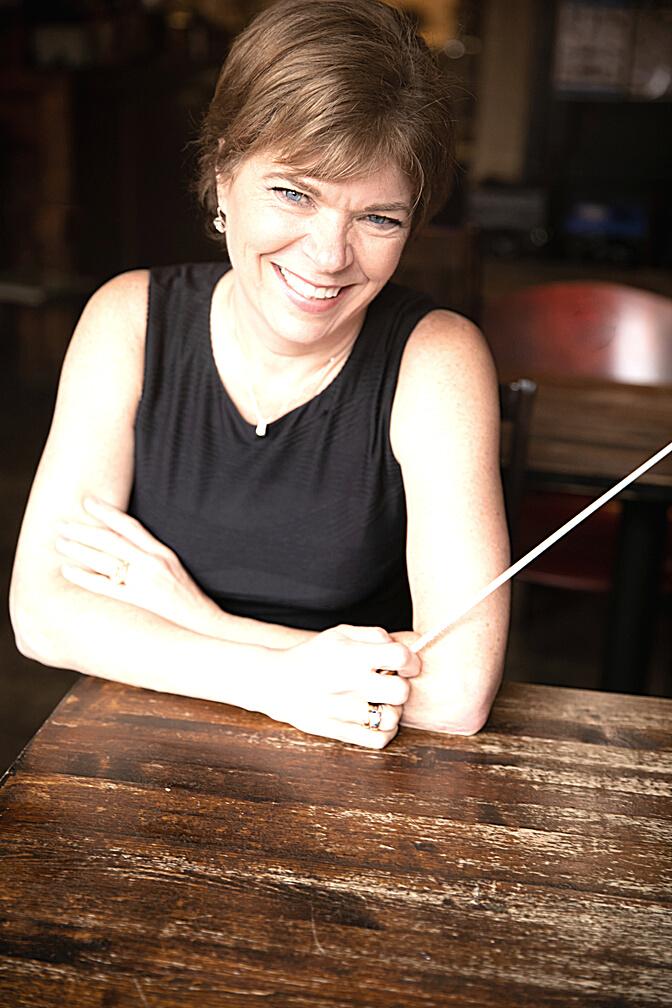

- Build a successful program without burning out
- Get students on-board with your goals
- Bring unity and calmness to your classroom
- Take your program to the next level


SATURDAY,









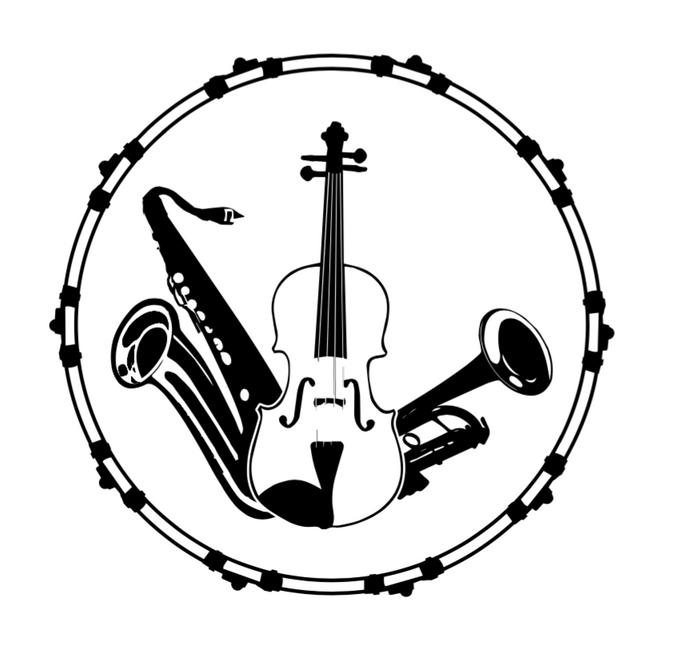

















 STUART WELSH Band ERIKA LOCKWOOD Ch l DAN DAVEY Jazz
ORCHESTRA Krista DeBolt
KENDRA KAY FRIAR Elementary
KARALYN SOFFER Small Schools
ADVOCACY Laura Arthur
STEVEN PHILLIPS General Music
JEREMY ZANDER President
KATHRYN BRIGGS Past-President
BEN LAWSON President-Elect
TODD ZIMBELMAN Treasurer MEGAN & BRANDEN HANSEN All-State Chairs
CAROLYN SUTTON Executive Director
KRISTI STINGLE 2nd VP , Conference Chair
STUART WELSH Band ERIKA LOCKWOOD Ch l DAN DAVEY Jazz
ORCHESTRA Krista DeBolt
KENDRA KAY FRIAR Elementary
KARALYN SOFFER Small Schools
ADVOCACY Laura Arthur
STEVEN PHILLIPS General Music
JEREMY ZANDER President
KATHRYN BRIGGS Past-President
BEN LAWSON President-Elect
TODD ZIMBELMAN Treasurer MEGAN & BRANDEN HANSEN All-State Chairs
CAROLYN SUTTON Executive Director
KRISTI STINGLE 2nd VP , Conference Chair



